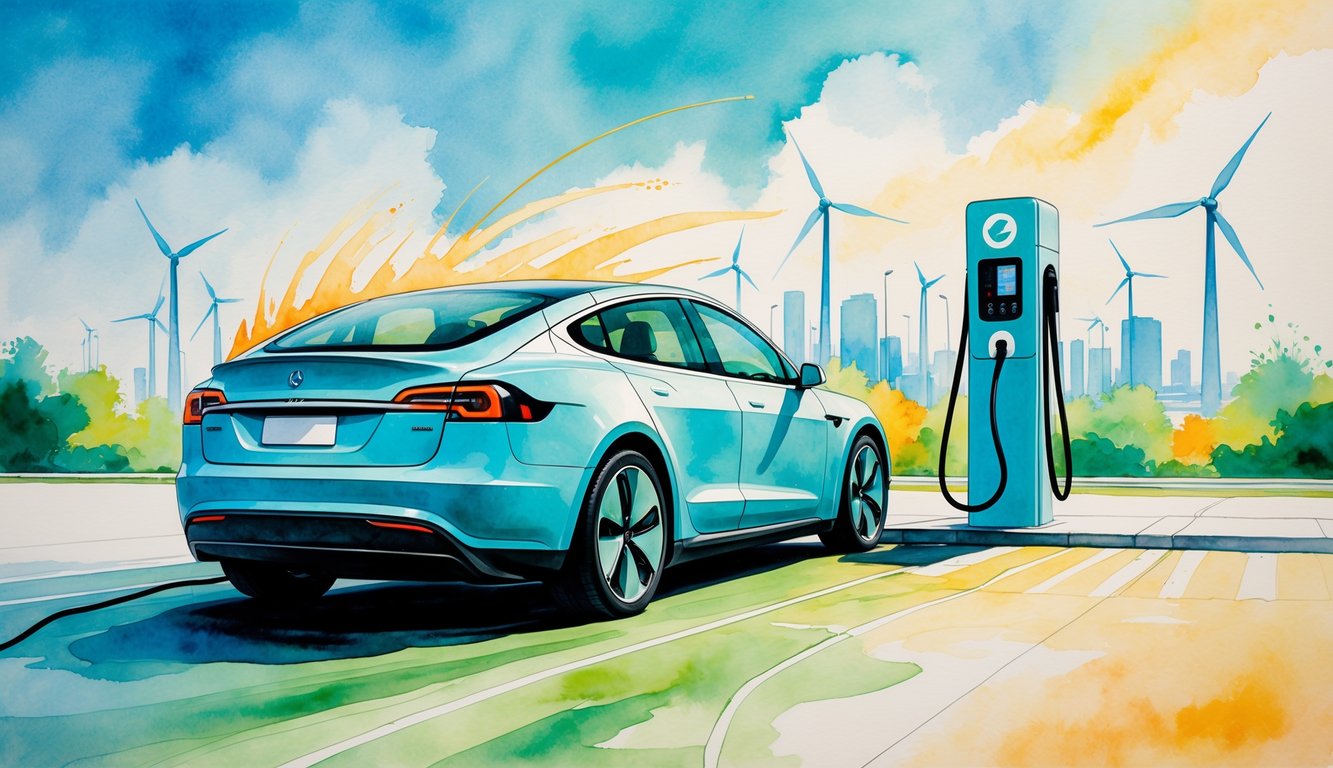
Smart Shopping Strategies in a Changing EV Marketplace
Prices used to be ridiculous—remember prepping for sticker shock, then getting hit with “admin fees” on top? Now, used EVs average under $34k and some brands are actually cheaper than their gas twins (Market Pulse, March 2025). It’s not a steady slide, though—price swings, new models, supply delays. Good luck predicting it.
Evaluating the Best Time to Buy
Timing? Drives me nuts. Almost bought in December, then prices dropped in spring—used EVs down nearly 50% from 2022 highs (McKinsey, Smart Shopping for Used EVs, 2024). Some months, 40% of used EVs are under $25k.
No algorithm tells you the right weekend for a deal. You just have to stalk dealer inventories like a hobby. New startups push prices down, big brands panic, incentives pop up and vanish. I check official promo pages, Reddit leaks, even test-drive near bank holidays (those deals are real). If I waited for “the right time,” I’d still be bumming rides off my neighbor, who’s convinced gas will be cheap forever.
Essential Tools and Resources for Shoppers
Scrolling through price sites almost broke my brain, so now I just set alerts on CarGurus and Autotrader. But those sites lag—sometimes by days. Turns out, private Facebook EV groups post dealer invoices before anyone else. Weird, but true.
For negotiating, the FuelEconomy.gov tax credit tool is gold. I wasted hours before realizing you can just enter the VIN for instant savings math. Why don’t more sites do that? Kelley Blue Book lowballs EV depreciation, so I double-check with iSeeCars or JD Power. Chatbots promising “local deals” just want affiliate clicks. I triple-check everything, maybe overkill, but with prices this volatile, even my accountant brother can’t keep up.
Frequently Asked Questions
Price swings everywhere. Not subtle like 2021—just wild drops. Used EVs, tax credits, resale messes; nothing like the steady resale of a Camry. All the new 2025 forecasts? Even weirder than last year.
What’s driving the decline in used EV prices lately?
I used to think EV depreciation would copy gas cars. Nope. Inventory’s up, demand’s weird. Edmunds says shoppers care less about tariffs or new car markups for used models. Automakers keep pumping out new EVs, like they missed the memo about supply and demand.
Battery warranties (especially on old Leafs) kill value faster than a broken aircon. Tax credits for used EVs—up to $4,500—aren’t saving prices. Everyone blames “range anxiety,” but it’s really tech moving too fast for resale demand to catch up.
How does the resale value of an electric car compare to a gasoline car over time?
Unpredictable cliffs. Sold a Bolt last fall—got peanuts. A ten-year-old Accord? Holds value, sometimes even goes up (COVID pricing was nuts). Kelley Blue Book tracks this: five-year-old EVs drop fast, Civics just hang on.
Why? Who knows. Tech turnover, battery rumors, whatever. I didn’t even test the battery; the buyer didn’t care.
Is it true that buying a used EV is now more affordable than before?
No catch. Most used EVs are $20k–$50k now (evercars.com). I know people who paid $34k for a used Model S in 2018—now they’re annoyed seeing the same car for half. New EVs are still expensive (F-150 Lightning, $55k+), but used? Buyer’s market.
Maintenance is cheaper—about $1,000 less per year on fuel and repairs. But, weirdly, nobody talks about the cost of installing a charger at home, like it’s some secret club.
Can I expect a good resale value for my EV after a decade?
Define “good.” If you mean not losing half your money, well, don’t hold your breath. Ten-year-old EVs (early Leafs, for example) linger on classifieds forever. Maybe people believed the “EVs hold value like Priuses” myth, but nope. Tech leaps and slow demand just kill prices.
My mechanic puts it bluntly: “Ten-year-old batteries? Most buyers walk away.” Teslas do a bit better, but even those are shaky as longer-range models come out. Only thing you can count on is unpredictability.
Why are second-hand electric car prices dropping so quickly?
Blink and a 2021 ID.4 is $6k less than you thought. New models, shifting tax incentives, battery health panic—though honestly, I’ve never met anyone who lost sleep over a three-year-old EV’s brakes. Even non-EV fans keep mentioning “tax credit timing” like it’s a secret handshake.
PCMag’s survey says interest is way down since 2019—just 39% buy for tax credits now. Hype cycles and fresh inventory outpace buyer worries. I thought charging station shortages would slow down price drops, not speed them up. Guess not.
Are there any projections on EV prices for the rest of 2025?
Oh man, projections? I’ve read way too many of those, and honestly, I trust them about as far as I can throw a Rivian. Like, I called up a dealer last week—he shrugged and said, “Who knows?” Edmunds claims new car prices shot up 29% (seriously, twenty-nine?), but who’s actually buying at those prices? I keep hearing about Mach-Es stacking up on lots. Are they just going to sit there until someone gets desperate?
And then, every time the government sneezes, tax credit rules shift. Supposedly, that means more used EVs, but does that mean anything for prices? I don’t know, do you? Feels like every “forecast” is really just a wild guess. My neighbor spent twenty minutes explaining his solar-powered carport plan—sounded about as likely as price stability before 2026. I’ll believe it when I see it, or maybe not even then.
